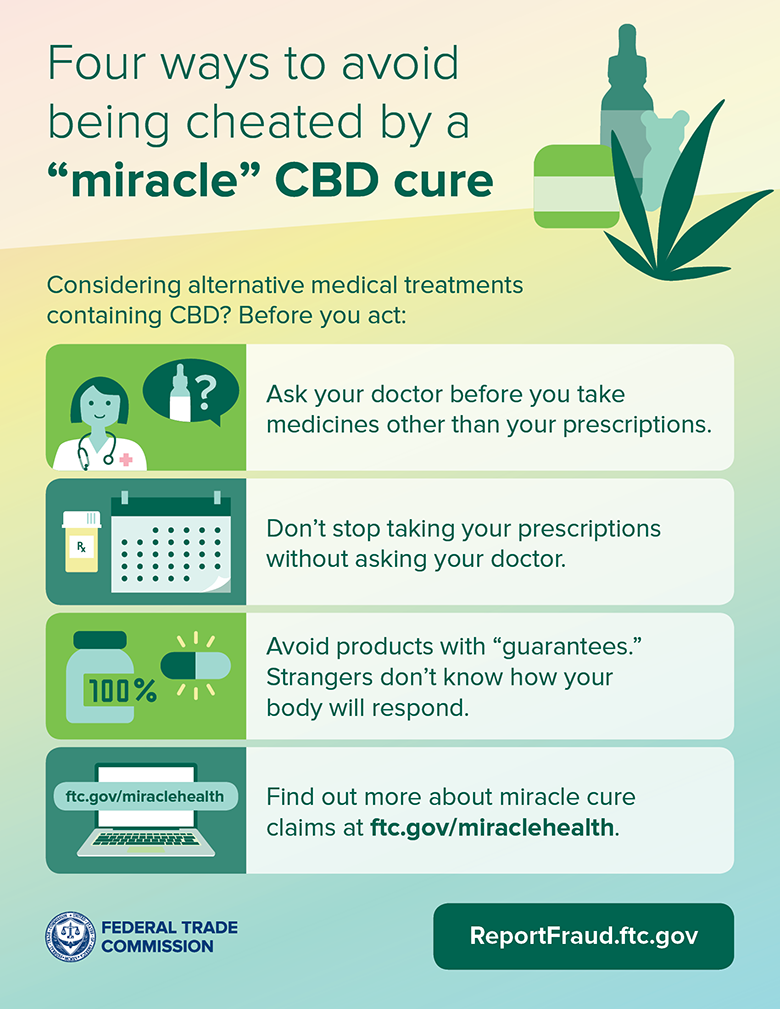If you’ve explored alternative treatments for medical conditions, you’ve probably noticed that CBD products are pretty popular. But if an ad claims a CBD-based product is scientifically proven to cure or treat your symptoms, take that with a dose of caution to prevent losing money and, possibly, putting your health at risk.
Today, the FTC announced six proposed complaints and settlement agreements as part of “Operation CBDeceit.” This operation is a law enforcement sweep against companies claiming their CBD products treat serious diseases and chronic health conditions like diabetes, depression, arthritis, heart disease, Alzheimer’s, and cancer. The FTC also says one of the companies charged people’s credit cards for bottles of CBD extract they hadn’t ordered. The proposed settlements would ban these companies and their affiliates from making disease prevention and cure claims without adequate scientific proof to back them up. As part of the settlements, the companies would have to notify people who bought their CBD products that no scientific evidence supports the companies’ serious health-related claims.
Operation CBDeceit is the FTC’s latest crackdown against companies making misleading or false statements about the health benefits of their products. Before CBD companies can claim their products are proven to treat or cure symptoms or diseases, they must have scientific evidence that meets the standards set by experts in those diseases and conditions.
Before you try CBD-based or any other products, take these steps to protect yourself:
-
Talk to your doctor before trying any alternative medicines — and definitely before you stop taking any prescription medications.
-
Avoid products that say they’re “guaranteed” to treat your condition. These people don’t even know you. How can they know a product will work with your body to treat your condition?
-
Find out more about miracle cure claims by reading the infographic below and visiting FTC.gov/miraclehealth.
If you think a company deceived you about how effective its products are, report it to the FTC at ReportFraud.ftc.gov.

